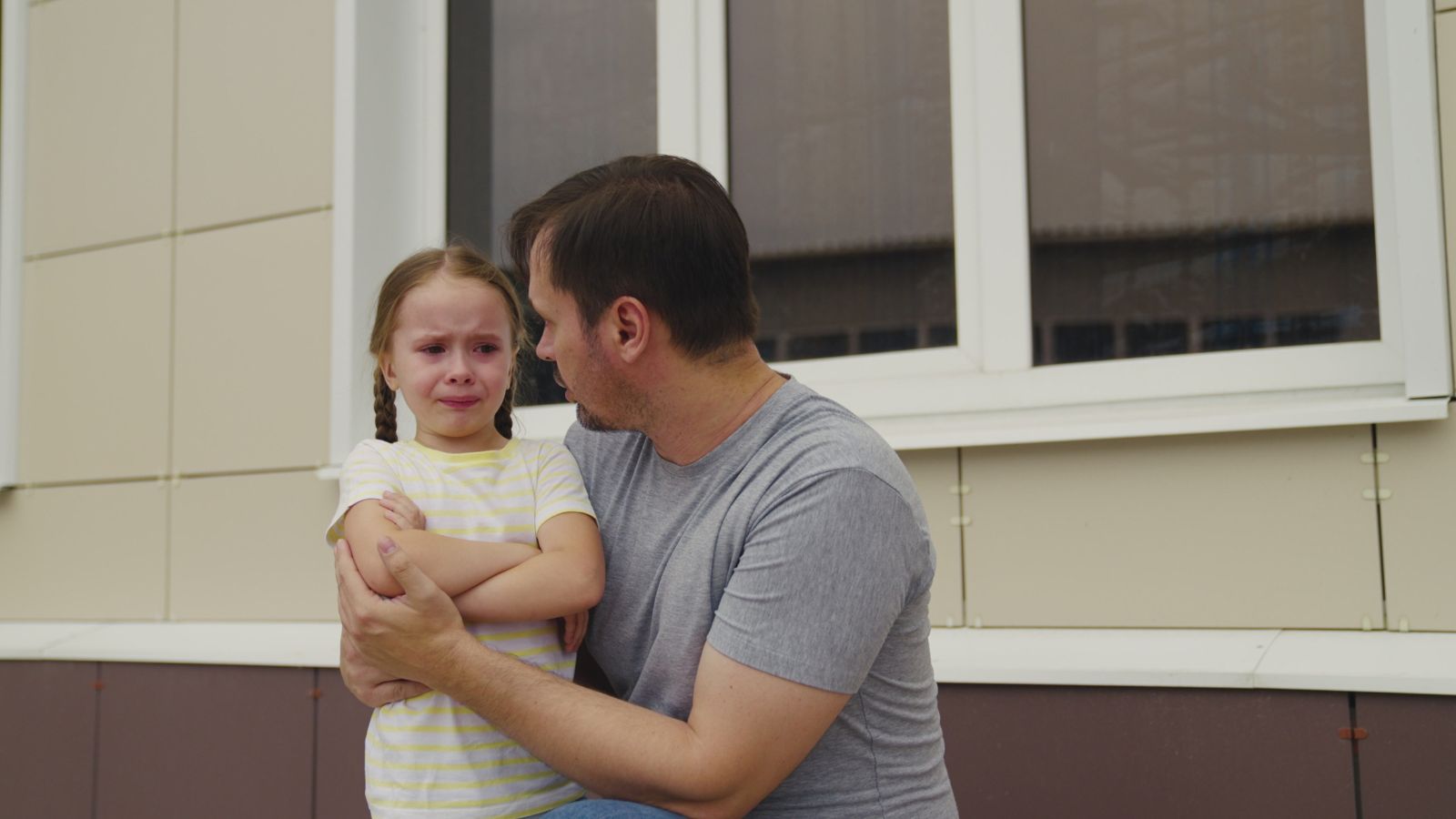Ask any parent and they’ll tell you that parenting is tough, and this can mean that sometimes words slip out without thinking. However, we also know that what parents say can have a lasting impression on their kids. Here are some things parents should try to avoid saying in the heat of the moment.
“Because I Said So”

You know, it’s easy to fall back on this phrase when kids ask too many questions. Parents are often tired, overwhelmed, or just trying to get through the day, and explaining every little detail can feel exhausting.
But when kids hear “because I said so,” it doesn’t give them an opportunity to understand the reasoning behind a rule or decision.
“Stop Crying Right Now”

It’s tempting to say this when emotions are running high, but it can make kids feel like their feelings don’t matter. Crying is a natural way to express emotions, whether it’s frustration, sadness, or even exhaustion. When parents shut it down with phrases like this, it teaches kids to suppress their emotions rather than process them in a healthy way.
“You’re Too Sensitive”

Sometimes, parents say this without realizing how hurtful it can be. When kids hear that they’re too sensitive, they might start to believe that their emotions are wrong or that they should toughen up to be accepted. Over time, this can lead to issues with self-esteem and emotional suppression.
“Why Can’t You Be More Like Your Sibling?”

Comparison can be incredibly damaging, even when it’s meant to encourage better behavior. When kids hear this, they may start to feel like they’re not good enough, just as they are.
Siblings have different strengths, weaknesses, and personalities, and comparing them can create unnecessary rivalry and resentment.
“I Wish You Were More Like Me”

It’s natural for parents to want to see parts of themselves in their children, but expecting them to be a carbon copy can put a lot of pressure on them. Kids have their own interests, talents, and personalities that deserve to be nurtured, not molded into someone else’s expectations.
“I’m Disappointed in You”

It comes as no surprise that hearing this from a parent can feel like a crushing blow for a child. While discipline and guidance are important, framing mistakes in a way that fosters learning rather than shame is key. Kids need to know that their worth isn’t tied to their mistakes.
“You Never Do Anything Right”

This phrase can be incredibly damaging to a child’s self-esteem. No one is perfect, and kids are still learning and figuring things out. Hearing this repeatedly can make them feel like they’re constantly failing, which can lead to a fear of trying new things. Encouragement and patience go a long way in helping kids build confidence.
“We Can’t Afford That”

Of course, talking about money is important, but the way it’s communicated to kids matters. When parents repeatedly say they can’t afford something, it can create anxiety around money and make kids feel guilty for asking for things.
Instead of shutting down the conversation, parents can explain budgeting in a way that helps kids understand financial priorities.
“You’ll Understand When You’re Older”

It’s easy to use this phrase when kids ask tough questions, but it can feel dismissive. Kids are naturally curious, and they want to understand the world around them. Even if they don’t fully understand everything right now, showing that their questions matter encourages their love of learning.
“You’re Acting Like a Baby”

When kids have meltdowns or struggle with their emotions, it’s tempting to say things like this to get them to calm down. But it can make them feel ashamed of their emotions instead of learning how to handle them. Emotional growth takes time, and they need guidance, not ridicule.
“You’re Not Trying Hard Enough”

We’re all guilty of saying this when kids struggle with something, but it can come across as discouraging rather than motivating. Kids are constantly learning, and sometimes what looks like a lack of effort is really just a need for more guidance or support.
When they hear this phrase, they might start to believe they’re not good enough, which can lead to frustration and a fear of failure.
“You’re Too Young to Understand”

It might feel like kids can’t grasp certain things, but brushing them off with this phrase can make them feel excluded or unimportant. Children are more perceptive than we think, and they deserve to have things explained to them in a way they can understand.
“You’ll Never Be Good at That”

Parents should know that telling a child they’ll never succeed at something can be incredibly damaging to their self-esteem. Even if they’re struggling, hearing that they won’t ever improve can make them give up before they even have a chance to try. Parents should focus on progress and effort rather than perfection.
“I Don’t Have Time Right Now”

Life gets busy, and it’s understandable that parents can’t always drop everything to focus on their kids. However, when children hear this too often, they may start to feel like they’re not a priority. Kids need attention and connection to feel loved and secure. A simple “Let’s talk after dinner” or “I’ll read with you before bed” helps kids feel valued.
“You Should Know Better”

It’s frustrating when kids make the same mistakes over and over, but expecting them to always know better doesn’t take into account their learning process.
Children are still developing, and they need reminders and guidance as they grow. Kids should feel like mistakes are opportunities to grow, not reasons to feel guilty or inadequate.
“That’s Not How You Do It”

When kids try to do something independently, they might not get it right the first time, and that’s okay. Parents can offer guidance in a supportive way by showing them how to improve while still acknowledging their efforts. Letting kids figure things out for themselves helps them develop problem-solving skills and confidence in their abilities.
“You’re Driving Me Crazy”

There’s no doubt about it, parenting can be overwhelming, and it’s normal to feel frustrated sometimes. But when kids hear this phrase, it can make them feel like they’re a burden or that their presence is too much to handle. Kids want to feel loved and accepted, even when they’re being difficult.
“You Always Mess Things Up”

Mistakes are a natural part of growing up, and kids need to feel safe making them. They need the freedom to experiment and learn without fear of judgment. A positive and supportive approach helps them feel more confident and willing to take on challenges and making mistakes should be seen as part of learning, not as proof of failure.
“Big Kids Don’t Do That”

From time to time, parents use this phrase to encourage maturity, but it can make kids feel pressured to grow up too fast. Children develop at their own pace, and forcing them to act older than they are can take away from the joy of childhood.
Instead of pushing them to grow up, parents can encourage age-appropriate independence while still allowing them to enjoy their innocence.
“Just Let Me Do It”

It’s often faster and easier for parents to step in and take over when kids struggle with something, but doing so too often can hinder their independence. Kids need the opportunity to try things on their own, even if they make mistakes along the way.
